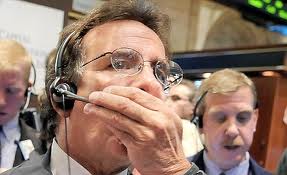Post Crisis Economics
By Bridget Rosewell
A conference last week brought together a variety of economists from academia and policy to discuss what changes the discipline should produce post the financial crisis and what changes should be made to degree studies.
There was probably a consensus that micro economics had made more progress than macro in recent years and that students should be taught more economic history (and possibly the history of economic thought), but beyond this there was perhaps insufficient willingness to engage in setting out the principles of the subject. John Sutton suggested that we would only be able to say we had a proper subject discipline when we could say that 95% of a textbook was true – when I asked the audience later to say whether they thought even 50% was true, no hand at all went up. I hesitated to try and find out whether there was any percentage a majority would have signed up to! I did wonder whether we should run an auction to decide the agreed proportion – an area where there is probably a consensus that progress has been made – but didn’t have any rules to hand.
If teachers and practitioners are unclear what truth there is in basic teaching, what can the subject be about? One teacher suggested it was about ‘thinking like an economist’ which I defined as considering incentives, balancing costs and benefits, asking about market failures. This is certainly how the distinction feels in public policy. Of course, this has nothing to say about whether equilibrium is a useful concept, or whether maximisation is possible.
John Kay stressed that different problems would need different approaches and modelling techniques and that economics was too often a technique in search of a problem. Andy Haldane drew attention to the importance of networks in many markets and how standard economics made no allowance for the impact of one market participant on another. But the group did not really focus on these approaches, and I think largely prefers to consider how adjustments can be made to the existing approaches to maintain as much as possible of the canon – even though it is not true!
Hardly anyone referred to learning from other disciplines, whether anthropology, biology, psychology, philosophy or history, although many of these are making contributions to how economies work. A particular contribution comes from physics as Paul Ormerod pointed out.
Of course there are circumstances in which the standard model of independent market participants, able on average to build a good model of the market, in a rational way, will be a sensible approach. But there are many circumstances when these conditions will not hold. It was noteworthy that innovation, growth, and disruption got little coverage at the conference. What is the model for considering large scale investment which will change connectivity between markets for example? What about technical innovation which disrupts markets? These are the sorts of changes which have been a distinguishing feature of capitalism and which have made possible the standard of living, health and longevity we now enjoy. We didn’t discuss these and we must.
I think that the conference showed that economics continues to have good problems, and it has some good skills. But it still lacks a set of good theories and quite often lacks good data as well.


Am I correct in saying that the owner of this blog is trying to reconcile Hayek with ideas that involve government? Because government is inherently a tool of violence and force, you seem to be trying reconcile theories that require violent and force driven transactions with Hayek’s theories of market evolution and information transfer. I suggest you not start with government but start with individual violence use. Self-defense may be a particularly useful tool to examine from this perspective. Self-defense is also free of a lot of the baggage that an institution as large as a government would have. From there, you may be able to get other violent transactions and expand. Also, Coase may have a thing or two that is useful. I wish you good luck!
hi Doc, was this reply meant for “The Complexity of Hayek” blog? I can see if I can transfer it but it may require you to!
Best wishes,
Greg Fisher
I have really enjoyed the discussions in this blog. I have an educational background in Finance and Economics and work in IT and have a huge interest in biology, mathematics, and philosophy. One thing we do on IT projects are make use of patterns (problem similarities) and methodologies (process of carrying out projects). One mistake that is made in my profession is finding out about a new pattern and methodology that is the “hot” topic and making it the solution to every problem…Most of the time the “new shiny object” tends to be the most complex and people who don’t have a good grasp of the overall problem and philosopies of the methodologies and patterns tend to use complex solution to simple problems…
I am sure economics sometimes has the same problem. Collective problems try to get solved with solutions best meant for individual problems and vice versa. Patterns and methodologies are tools and skill to be applied to “inputs” to get our required/desired output…I think this is what the blog is trying to get at…I like it. It speaks to me in a structure I prefer and familiar with. Keep up the good work!